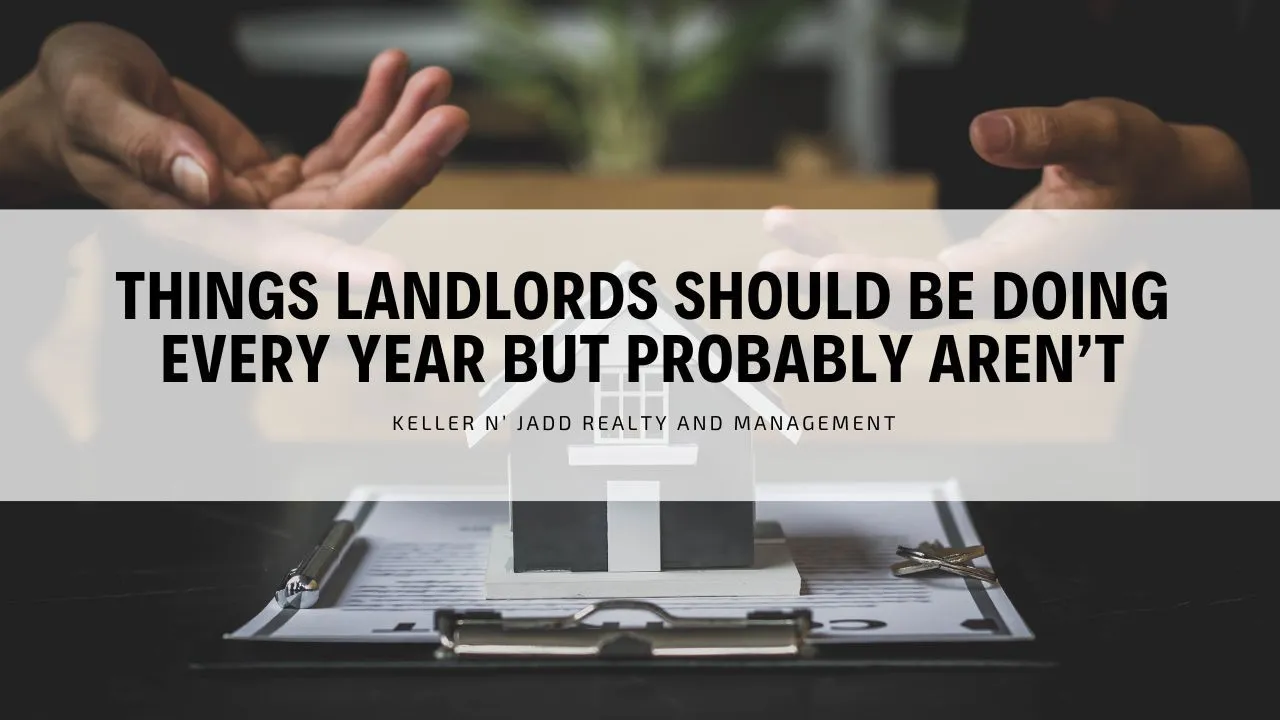Key Takeaways
- Stay Proactive: Annual tasks like lease renewals, rent adjustments, and inspections help protect your ROI.
- Prioritize Maintenance: Routine upkeep, fixing leaks, cleaning gutters, and replacing HVAC filters, prevents expensive damage.
- Review Coverage: An annual insurance policy review ensures proper protection and cost-effective coverage.
As a landlord, do you find yourself waiting until the last minute to act? If so, it could be hurting your return on investment (ROI).
Procrastination is bad for business—delaying action often turns small problems into major, costly ones. For example, a minor leak left unchecked can quickly lead to water damage and mold, requiring expensive remediation.
In this guide Keller n’ Jadd Property Management, we’ll walk you through 6 essential things you should be doing every year but probably aren’t—each of which can protect your ROI.
1. Lease Renewals
Vacancies drain your profits. Every day a unit sits empty is money lost. One of the best ways to maintain steady occupancy is by renewing lease agreements on time. If you have a reliable tenant who pays rent promptly, takes care of the property, and follows the lease terms, prioritize keeping them, even if it means offering incentives.
Simple adjustments, like relaxing a pet policy, allowing a wall repaint, or reducing parking fees, can go a long way in retaining quality renters.
Additionally, if a great tenant is on a short-term lease, consider transitioning them to a long-term agreement. This not only secures consistent income but also helps reduce turnover and operational costs.
2. Charge the Right Rent
The rental market is constantly shifting due to economic conditions and supply-and-demand fluctuations.


